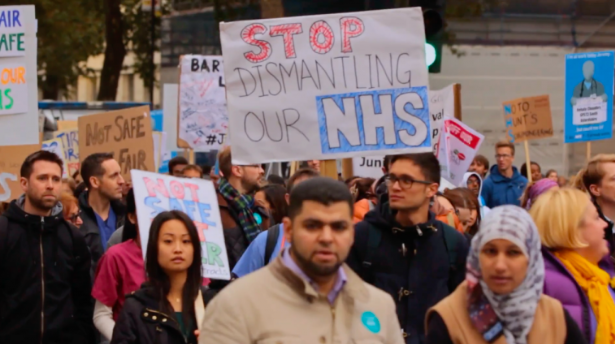This September, I started my semester of study abroad in London, United Kingdom (UK). As a part of my academic program, titled ‘Health Practice and Policy,’ I am required to take part in a service-learning internship. My placement for the semester is with Healthwatch Hackney, a non-profit watchdog organization of the United Kingdom’s universal public healthcare system, the National Health Service (NHS). As a double major in Public Health and Economics, I have a deep interest in health policy and its ability to shape a healthcare system that is both cost-effective and promotive of health equity. I hope that through my time as an intern for Healthwatch Hackney, I will continue to expand on my knowledge of health policy and health systems.
Although my internship has just begun, I have already had the opportunity to delve into the complexities of the comparisons between the UK and the United States (US) healthcare systems. This comparison especially interests me, given the current debate over universal healthcare in the US democratic primary campaigns, as well as because of the unfortunate reality that the US spends significantly more on healthcare than other high-income country and has significantly worse health outcomes. The disparities in access to health services and in health outcomes in the US is a major issue, and one that I hope to help tackle through a career in health policy in the future. This internship with Healthwatch Hackney promises to provide me with greater knowledge about the details of a universal healthcare system, from financing to provision, and about how a public healthcare system can greater ensure healthcare for everyone.
In my first week at Healthwatch Hackney, I met with the organization’s team, read about their activities involving inspecting and rating patient care in the Hackney borough of London, and began my first research task of evaluating the websites of general practitioners (GPs). Unlike the US, the UK has a built-in and well-known triage system for its citizens. If a person falls ill or gets injured, she knows if she should schedule an appointment with her GP, go to the emergency room immediately, or simply visit a pharmacist for medication. In order to ensure that this process, which very efficiently utilizes the country’s limited healthcare resources, is followed by UK residents, it is very important that GP’s websites are accessible and easy to use. Every GP office has its own website. While some are more outdated, the best ones allow patients to book appointments online, have an online consultation with a doctor, and provide complaints directly on the website. It is my job to review the websites of every GP in the Hackney borough for essential elements, such as new patient information and accessibility resources, as well as for readability and clarity. The data that I continue to collect will eventually be synthesized into a report of recommendations for GPs in the area to improve their websites. I am glad to be able to contribute to improving the experiences of patients utilizing NHS care and I look forward to learning even more about universal healthcare systems through my internship with Healthwatch Hackney.


